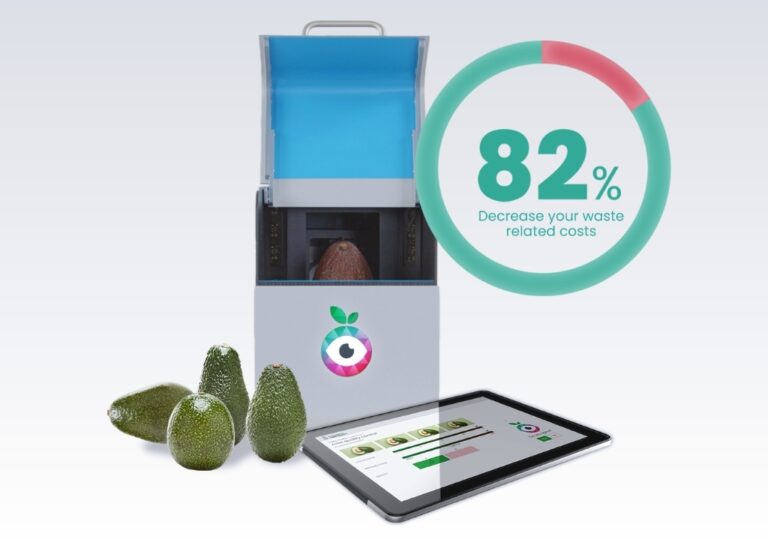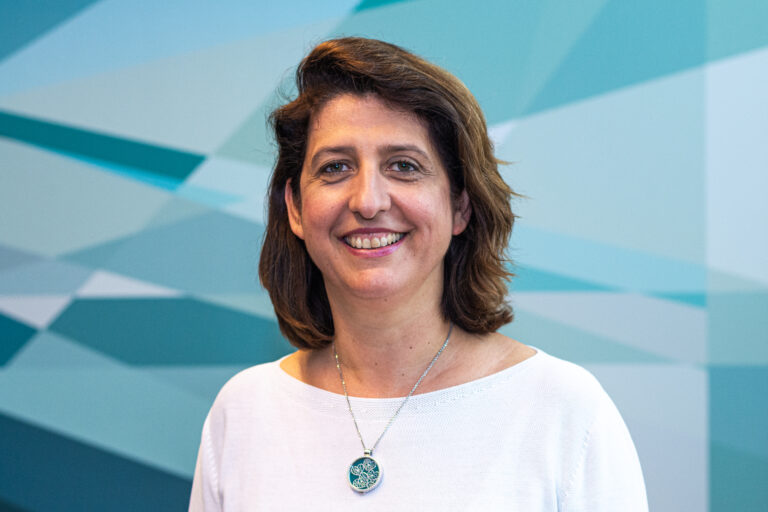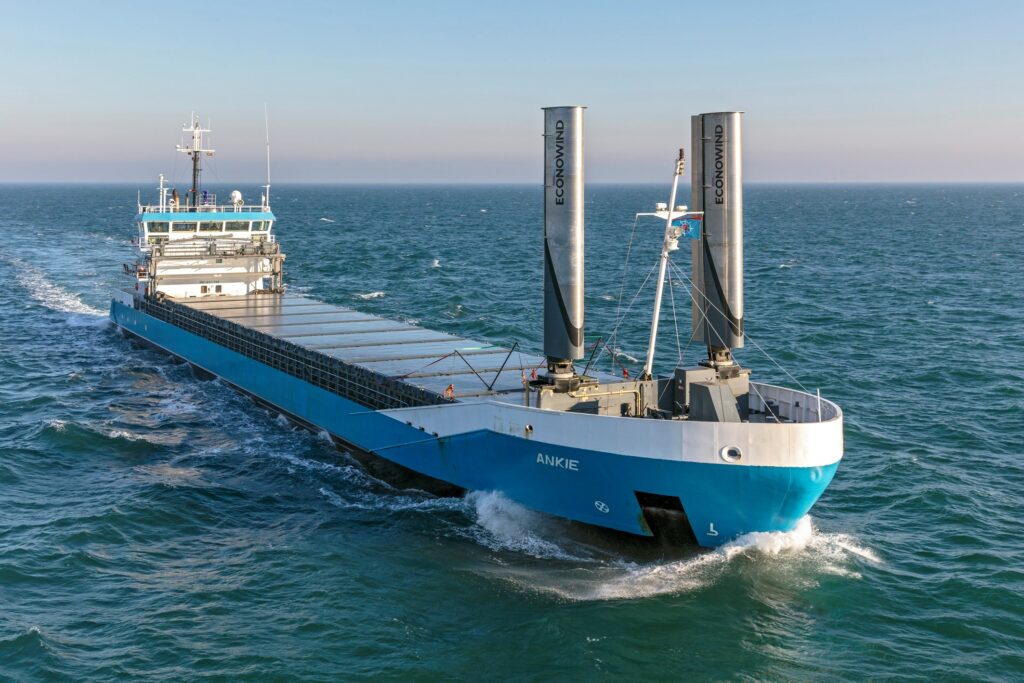Pressing, squeezing and feeling avocados until you find one with just the right amount of give to show it is ripe does nothing to improve the quality of the product while generates waste and affecting costs. Recent consumer research has shown that one in three avocados is thrown away.
What challenge does it solve?
Estimating the ripeness of an avocado is a tricky issue much earlier in the logistical chain too. Before an avocado reaches a consumer, it passes at least ten intermediate points. The question is how the ripeness can be estimated during this process without damaging the fruit. Combining the experience of inspectors with new technological possibilities has let Experience Data and its subsidiary Experience Fruit Quality come up with a solution that also has a positive impact, reducing waste and improving cost-efficiency. They developed a smart device called AVOS that lets inspectors see how ripe an avocado is without cutting into it.
Use of artificial intelligence
The revolutionary smart machine AVOS is a practical tool for daily use in the workplace. The smart AI in the machine can perform quality checks better than visual inspections. AVOS collects unique qualitative data, stores that information and then uses AI to estimate the ripeness and quality of avocados. If the system is uncertain about the quality, an employee is called to assess the quality manually.
Impact
Applying the insights from the data and adjusting the core process and working methods make it possible to solve complex issues and improve the operational and strategic core processes. Alternative logistical choices can be made as a result, leading to less waste and lower CO2 emissions. These choices ultimately result in fewer complaints about ripeness and quality. When the entire chain is more transparent thanks to the data and can explain what it has learned, not only the inspectors but also the employees, managers and avocado farmers can make better and smarter decisions. The digital assistant AVOS is perceived in this process as a unique colleague who offers clear added value.
As a result of this method:
- The inspector can now look at larger numbers of avocados based on larger samples and can make smarter and more well-founded decisions about batches based on that data.
- At the supplier level, managers can see the maturity and quality, detect problems, explain things to suppliers and determine strategic actions based on this information.
- The management have a clear picture of the global import and transit of avocados, waste reduction and cost savings; they too can make smarter choices to make the chain more sustainable.
The benefits and goals
The primary goal of AVOS is to reduce waste of avocados and save costs by doing so. Additionally, specialist knowledge is permanently recorded. The solution can be optimally integrated into the daily work of avocado inspectors. It consists of the following components: AVOS mini (sensors), AVOS app (software), AVOS AI (models) and AVOS (Avatar). Studies are being carried out into whether it is possible to apply the knowledge acquired to other products such as mangoes. AVOS has now been successfully applied by Albert Heijn and Bakker Barendrecht.
Joint aims
The AVOS device lets Experience Fruit Quality (a subsidiary of Experience Data) focus on a specific market: fruit quality. Experience Data itself focuses on the corporate market. Experience Data’s mission is operationalising AI to make the lives of professionals easier and more fun with smart data solutions for reducing repetitive and complex tasks. Experience Data has accumulated experience and knowledge in AI and data science and is happy to share that knowledge and experience with participants of the NL AIC to assist the further development of AI in the Netherlands.
Collaborative partners
Experience Fruit Quality and Experience Data collaborated in this project with R2R and Sanders Machinebouw. For more information about the development of the AVOS smart machine and the associated application options, please go to the Experience Data or Experience Fruit Quality websites.






